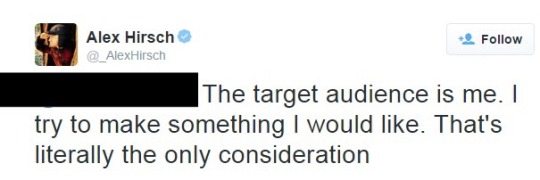Text
i’ve been doing my homework on how to break into a writing career and honestly. there’s a Lot that i didn’t know about thats critical to a writing career in this day and age, and on the one hand, its understandable because we’re experiencing a massive cultural shift, but on the other hand, writers who do not have formal training in school or don’t have the connections to learn more via social osmosis end up extremely out of loop and working at a disadvantage.
162K notes
·
View notes
Text
Are These Filter Words Weakening Your Story?
After putting my writing on hold for several weeks, I decided to jump back in. I expected to find all sorts of problems with my story–inconsistencies in the plot, lack of transitions, poor characterization–the works. But what began to stick out to me was something to which I’d given little thought in writing.
Filter words.
What are Filter Words?
Actually, I didn’t even know these insidious creatures had a name until I started combing the internet for info.
Filter words are those that unnecessarily filter the reader’s experience through a character’s point of view. Dark Angel’s Blog says:
“Filtering” is when you place a character between the detail you want to present and the reader. The term was started by Janet Burroway in her book On Writing.
In terms of example, you should watch out for:
To see
To hear
To think
To touch
To wonder
To realize
To watch
To look
To seem
To feel (or feel like)
Can
To decide
To sound (or sound like)
To know
I’m being honest when I say my manuscript is filled with these words, and the majority of them need to be edited out.
What do Filter Words Look Like?
Let’s imagine a character in your novel is walking down a street during peak hour.
You might, for example, write:
Sarah felt a sinking feeling as she realized she’d forgotten her purse back at the cafe across the street. She saw cars filing past, their bumpers end-to-end. She heard the impatient honk of horns and wondered how she could quickly cross the busy road before someone took off with her bag. But the traffic seemed impenetrable, and she decided to run to the intersection at the end of the block.
Eliminating the bolded words removes the filters that distances us, the readers, from this character’s experience:
Sarah’s stomach sank. Her purse—she’d forgotten it back at the cafe across the street. Cars filed past, their bumpers end-to-end. Horns honked impatiently. Could she make it across the road before someone took off with her bag? She ran past the impenetrable stream of traffic, toward the intersection at the end of the block.
Are Filter Words Ever Acceptable?
Of course, there are usually exceptions to every rule.
Just because filter words tend to be weak doesn’t mean they never have a place in our writing. Sometimes they are helpful and even necessary.
Susan Dennard of Let The Words Flow writes that we should use filter words when they are critical to the meaning of the sentence.
If there’s no better way to phrase something than to use a filter word, then it’s probably okay to do so.
Want to know more?
Read these other helpful articles on filter words and more great writing tips:
Filter Words and Distancing Point of View
The Reasons Editors reject Manuscripts
Filter Those words and Strengthen Your Writing
44K notes
·
View notes
Text
If your plot feels flat, STUDY it! Your story might be lacking...
Stakes - What would happen if the protagonist failed? Would it really be such a bad thing if it happened?
Thematic relevance - Do the events of the story speak to a greater emotional or moral message? Is the conflict resolved in a way that befits the theme?
Urgency - How much time does the protagonist have to complete their goal? Are there multiple factors complicating the situation?
Drive - What motivates the protagonist? Are they an active player in the story, or are they repeatedly getting pushed around by external forces? Could you swap them out for a different character with no impact on the plot? On the flip side, do the other characters have sensible motivations of their own?
Yield - Is there foreshadowing? Do the protagonist's choices have unforeseen consequences down the road? Do they use knowledge or clues from the beginning, to help them in the end? Do they learn things about the other characters that weren't immediately obvious?
83K notes
·
View notes
Text
don’t like it when people say you can’t have potatoes in ur fantasy novel without detailed explanation. who gives a fuck
29K notes
·
View notes
Text
i love motifs i love recurring themes i love symbolism i love foreshadowing i love impactful narratives
21K notes
·
View notes
Text
I think, when it comes to fantasy settings, you really can't go wrong with having a giant tree
41K notes
·
View notes
Text
Tips for Writing a Difficult Scene
Every writer inevitably gets to that scene that just doesn't want to work. It doesn't flow, no matter how hard you try. Well, here are some things to try to get out of that rut:
1. Change the weather
I know this doesn't sound like it'll make much of a difference, but trust me when I say it does.
Every single time I've tried this, it worked and the scene flowed magically.
2. Change the POV
If your book has multiple POV characters, it might be a good idea to switch the scene to another character's perspective.
9/10 times, this will make the scene flow better.
3. Start the scene earlier/later
Oftentimes, a scene just doesn't work because you're not starting in the right place.
Perhaps you're starting too late and giving too little context. Perhaps some description or character introspection is needed before you dive in.
Alternatively, you may be taking too long to get to the actual point of the scene. Would it help to dive straight into the action without much ado?
4. Write only the dialogue
If your scene involves dialogue, it can help immensely to write only the spoken words the first time round.
It's even better if you highlight different characters' speech in different colors.
Then, later on, you can go back and fill in the dialogue tags, description etc.
5. Fuck it and use a placeholder
If nothing works, it's time to move on.
Rather than perpetually getting stuck on that one scene, use a placeholder. Something like: [they escape somehow] or [big emotional talk].
And then continue with the draft.
This'll help you keep momentum and, maybe, make the scene easier to write later on once you have a better grasp on the plot and characters.
Trust me, I do this all the time.
It can take some practice to get past your Type A brain screaming at you, but it's worth it.
So, those are some things to try when a scene is being difficult. I hope that these tips help :)
Reblog if you found this post useful. Comment with your own tips. Follow me for similar content.
52K notes
·
View notes
Text
someone, reading my writing: wow great story!
me, sticking my hands in the plotholes: thanks it has pockets :)
100K notes
·
View notes
Text
A take on supers that I've been toying with: Couple that knows each other is a superhero but have no idea which hero the other is. Like, they are both well aware they are dating a hero's secret identity, but WHOSE secret identity.
Trying to drop hints to coworkers at Hero Agency. Thinking all day about the handshake someone gave them at work and if it felt like holding their lover's hand. The tension possibilities are endless
#writing prompt#writing ideas#superheores#i wouldn't do anything with it yet bc im still not done with my other stuff#but if anyone makes anything tag me!
0 notes
Text
Someone: So what is your novel? Middle grade? YA? Adult? NA?
Me:

148K notes
·
View notes




